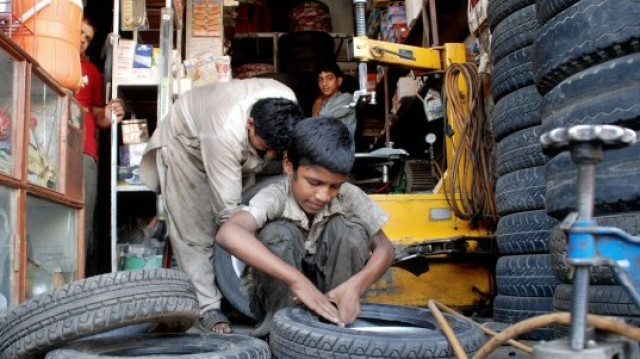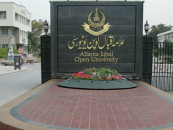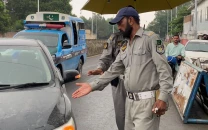'Media’s role key in combating child labour'
Students and faculty members of local universities screened documentaries to highlight the issue.

The conference aimed to create awareness about the harmful impact of child labour in the country. A total of 34 students of media studies from Fatima Jinnah Women University, Allama Iqbal Open University and Islamic International University screened documentaries highlighting the issue of child labour.
Li said the newly developed National Educational Policy 2009 now articulates the need to initiate a large-scale education programme to rehabilitate child labourers through the introduction of special education in government schools. He said ILO is supporting the government of Pakistan to strengthen its institutional mechanisms to better coordinate its policy and programme-level action on child labour. He termed the project to be “one of the most strategic and important ILO interventions in Pakistan.” Over the years, he said, the country has ratified a number of ILO conventions prohibiting child labour, including elimination of worst forms of child labour (ILO convention 182). “Media is a powerful tool to generate information, educate and mobilise masses and
shape public opinion on any issue,” Li added.
Speaking on the occasion, Director General Ministry of Information and Broadcasting Mohammad Azam said there is a dire need for research and data collection to combat child labour in the country and for an effective implementation of policies. “People need to be made aware that child labour is not only detrimental to children and a fundamental denial of their rights but also an obstacle to national development.” He said that media organisations need to regard violation of the rights of children and issues related to children’s safety, privacy, security, education, health, social welfare and all forms of exploitations, as important questions for investigation and public debate.
Joint Secretary Ministry of Labour and Manpower Mustafain Kamzi said, “Child labour is a problem that needs an integrated approach.” He said the government is facing challenges in implementing the National policy and Plan of Action to Combat Child Labour since 2000, and National Time Bound Programme for Elimination of Worst Forms of Child Labour since 2008. “We have taken a number of steps to address the issue of child labour but are still far from our destination,” he added.
“Social transformation is needed to wipe out the problem of child labour from Pakistan,” Terje Barstad, in charge of affairs at The Royal Norwegian Embassy. In this regard, the role of print and electronic media in the country is essential. “It can play the catalyst role to educate people on the issues of child labour and how to curb it.” He assured that the Norwegian govt will continue to support the people of Pakistan in their effort to make the country free of child labour.
Deputy Managing Director Pakistan Television Corporation Shahid M Nadeem and faculty members of different universities were also present on the occasion.
Published in The Express Tribune, December 16th, 2010.



















COMMENTS
Comments are moderated and generally will be posted if they are on-topic and not abusive.
For more information, please see our Comments FAQ